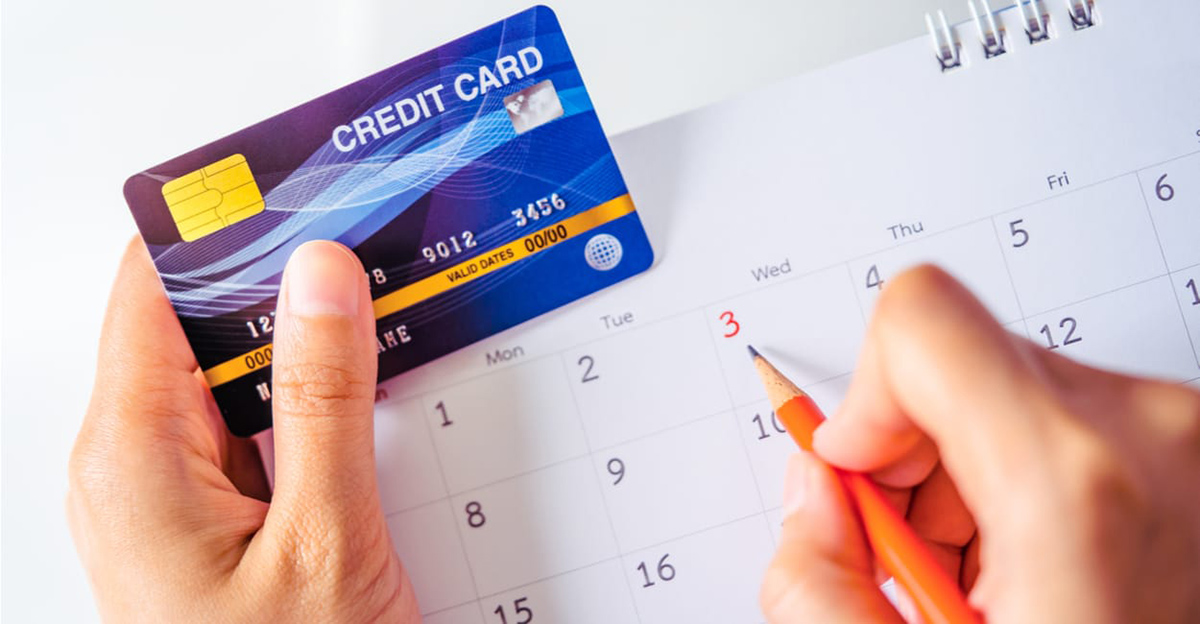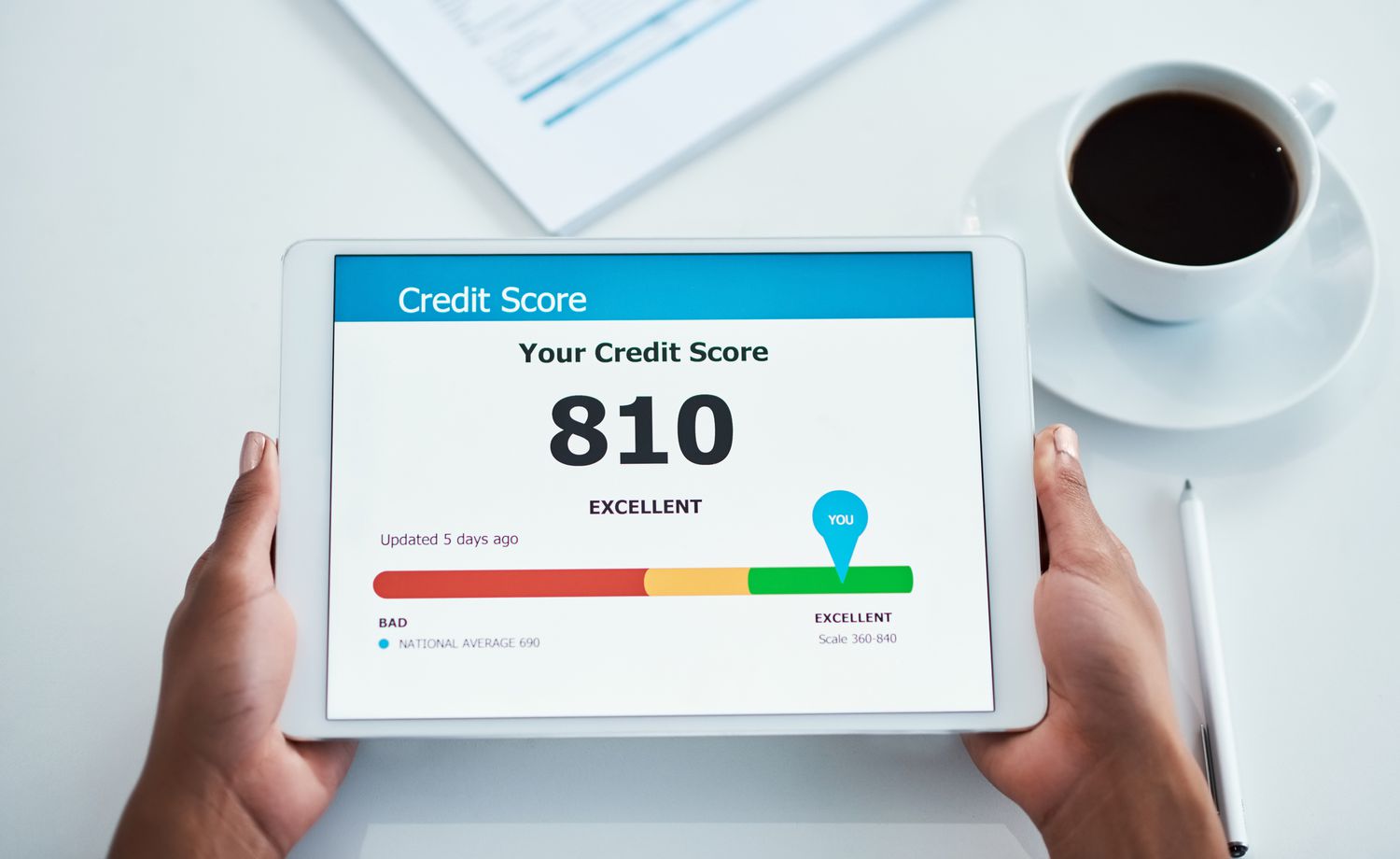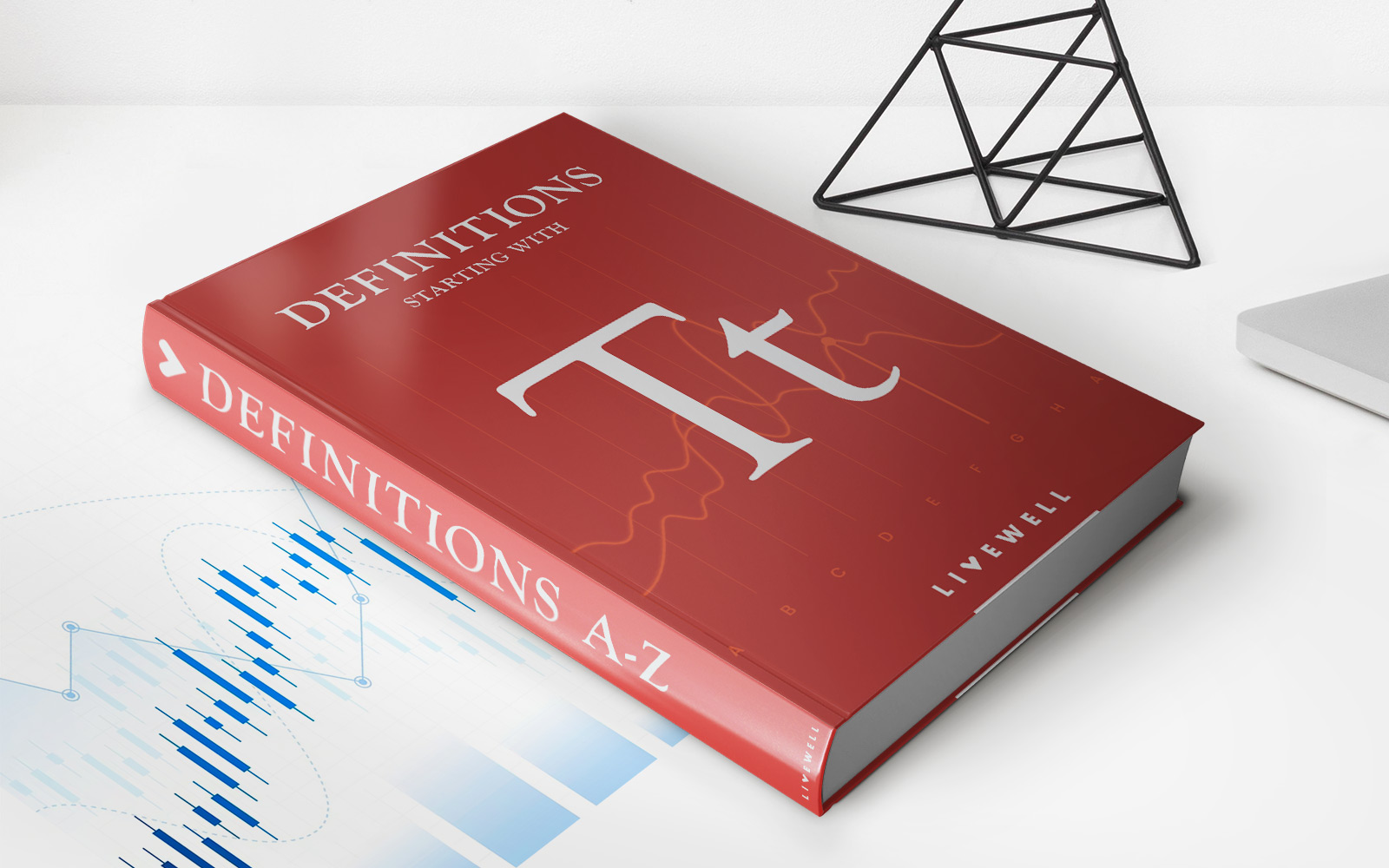

Finance
When Do Credit Bureaus Check Your Balance
Published: January 6, 2024
Find out when credit bureaus check your balance and how it affects your finance. Stay informed about credit report updates and take control of your financial future.
(Many of the links in this article redirect to a specific reviewed product. Your purchase of these products through affiliate links helps to generate commission for LiveWell, at no extra cost. Learn more)
Table of Contents
Introduction
Welcome to the world of credit bureaus! If you’re wondering when credit bureaus check your balance, you’ve come to the right place. Understanding the factors that credit bureaus consider and the frequency of balance checks can help you manage your credit effectively and maintain a healthy credit score.
Credit bureaus play a crucial role in determining your creditworthiness. They collect and analyze data from various sources to assess your credit risk. This information is used by lenders, landlords, and other entities to make informed decisions about extending credit or offering financial opportunities.
While credit bureaus consider several factors when evaluating your creditworthiness, your credit balance is one important aspect. The amount of outstanding debt you have compared to your available credit, known as your credit utilization ratio, plays a significant role in determining your creditworthiness.
In this article, we will explore when credit bureaus check your balance and how it impacts your credit score. We will also provide some tips on managing your credit balance wisely.
Understanding Credit Bureaus
Before we dive into the specifics of when credit bureaus check your balance, let’s first understand what credit bureaus are and how they operate.
Credit bureaus, also known as credit reporting agencies, are companies that collect and maintain credit information on individuals and businesses. The three major credit bureaus in the United States are Equifax, Experian, and TransUnion. These bureaus gather and compile data from various sources, such as lenders, banks, credit card companies, and public records.
The primary role of credit bureaus is to create credit reports for individuals based on their credit history. These reports contain information about your credit accounts, payment history, outstanding debts, and other relevant financial data. Creditors and lenders use these reports to evaluate your creditworthiness when you apply for loans, credit cards, or other financial products.
It’s important to note that credit bureaus do not decide whether you are approved or denied credit. They simply provide information to lenders, who then make their own judgments based on the data provided. Think of credit bureaus as information providers rather than decision-makers.
In addition to maintaining credit reports, credit bureaus also calculate credit scores. A credit score is a numerical representation of an individual’s creditworthiness, based on their credit history. The most commonly used credit scoring model is the FICO score, which ranges from 300 to 850.
By analyzing your credit history and other relevant information, credit bureaus assign you a credit score that lenders use to assess your credit risk. The higher your credit score, the more likely you are to be approved for credit and receive favorable terms and conditions.
Now that we have a basic understanding of credit bureaus, let’s explore the factors they consider when evaluating your creditworthiness.
Factors Considered by Credit Bureaus
When credit bureaus evaluate your creditworthiness, they take into account various factors that help determine your credit score. These factors provide insights into your financial behavior and history, giving lenders an indication of your ability to manage debt responsibly. Here are some key factors considered by credit bureaus:
- Payment History: Your track record of making on-time payments plays a significant role in determining your creditworthiness. Credit bureaus consider whether you have any late payments, missed payments, or accounts that have gone into collections.
- Credit Utilization Ratio: This ratio compares the amount of credit you have available to the amount you are currently using. Keeping your credit utilization low, ideally below 30%, demonstrates responsible credit management and can positively impact your credit score.
- Length of Credit History: The length of time you’ve been using credit is another factor credit bureaus consider. A longer credit history provides more data for lenders to assess your creditworthiness. This includes the age of your oldest credit account, the average age of your accounts, and the age of your newest account.
- Types of Credit: Credit bureaus also take into account the types of credit you have. This includes credit cards, loans, mortgages, and other forms of credit. Having a mix of different types of credit can demonstrate your ability to handle various financial obligations.
- New Credit Applications: When you apply for new credit, such as credit cards or loans, credit bureaus consider the number of recent credit inquiries. Multiple inquiries within a short period may indicate a higher risk to lenders.
It’s important to note that credit bureaus weigh these factors differently based on their scoring models. However, understanding these general factors gives you a good idea of what credit bureaus are looking for when evaluating your creditworthiness.
Now that we have covered the factors considered by credit bureaus, let’s move on to the frequency of balance checks.
Frequency of Balance Checks
One common question when it comes to credit bureaus checking your balance is how often they do so. The frequency of balance checks can vary depending on several factors, including the individual credit bureau and the specific creditor or lender.
Credit bureaus typically receive updates on your credit accounts from lenders on a regular basis. This information includes your credit balance, payment history, and other relevant financial data. However, it’s important to note that not all lenders report to all credit bureaus. Some lenders may report to only one or two of the major credit bureaus, while others may report to all three.
In terms of the actual frequency of balance checks, credit bureaus do not check your balance on a daily or real-time basis. Instead, they receive updates at regular intervals, which can range from monthly to quarterly. These updates allow credit bureaus to maintain accurate and up-to-date information on your credit report.
It’s worth mentioning that some lenders may provide more frequent updates to credit bureaus than others. For example, credit card companies often report your balance and payment activity monthly, while mortgage lenders may report less frequently.
It’s also important to keep in mind that while credit bureaus receive regular updates from lenders, they don’t necessarily check your balance for every credit account you have. Instead, they rely on the information provided by lenders and incorporate it into your credit report.
Now that we understand the frequency of balance checks, let’s explore the circumstances in which credit bureaus are more likely to check your balance.
When Credit Bureaus Check Your Balance
Credit bureaus typically check your credit balance when they receive updates from lenders or creditors. These updates can occur at different intervals depending on the creditor and the type of credit account. Here are some key situations when credit bureaus are more likely to check your balance:
- New Credit Applications: When you apply for new credit, such as a credit card or a loan, the lender will most likely report the account to the credit bureaus. This includes reporting your credit limit or loan amount, as well as the initial balance. This information is then incorporated into your credit report.
- Regular Account Updates: Lenders typically report your credit balance and payment activity to the credit bureaus on a regular basis. This can happen monthly, quarterly, or at other regular intervals. These updates allow credit bureaus to have accurate, up-to-date information about your credit usage and payment habits.
- Changes in Credit Limit: If there are changes in your credit limit or loan amount, the creditor may update this information with the credit bureaus. This can impact your credit utilization ratio, which is an important factor that credit bureaus consider when evaluating your creditworthiness.
- Account Closure or Delinquency: If you close a credit account or if an account becomes delinquent, the creditor will report this information to the credit bureaus. This can significantly impact your credit score and overall credit profile.
- Disputes or Corrections: If you dispute an error on your credit report or if there are any corrections made to your credit information, credit bureaus will review and update your credit report accordingly, including your credit balance.
It’s important to note that credit bureaus do not proactively check your credit balance on their own. They rely on the information provided by lenders and creditors to update your credit report. Therefore, it’s essential to maintain good communication with your lenders and ensure that they report accurate and updated information to the credit bureaus.
Now that we know when credit bureaus check your balance, let’s explore how these balance checks impact your credit score.
Impact of Balance Checks on Credit Score
Now that we’ve explored when credit bureaus check your balance, let’s discuss the impact of these balance checks on your credit score. Balance checks by credit bureaus have both direct and indirect effects on your credit score.
The direct impact of balance checks on your credit score is minimal. Credit bureaus primarily focus on your credit utilization ratio, which is the amount of credit you are currently using compared to your total available credit. This ratio is calculated using the balance information reported by lenders.
A high credit utilization ratio can negatively impact your credit score. If your balances are close to or near your credit limit, it suggests a higher risk to lenders, as it may indicate over-reliance on credit or potential difficulty in managing your debt obligations. On the other hand, a low credit utilization ratio, typically below 30%, can positively impact your credit score.
So, while credit bureaus don’t specifically check your balance frequently, they do consider your credit utilization ratio, which is influenced by your credit balances. Therefore, it’s important to keep your credit balances as low as possible, relative to your credit limits, to maintain a healthy credit utilization ratio and improve your credit score.
In addition to the direct impact on your credit score, balance checks indirectly affect your creditworthiness and future credit opportunities. Lenders and creditors use your credit score as a key factor in their decision-making process when determining whether to approve your applications for credit cards, loans, mortgages, and other financial products. Higher credit scores are typically associated with more favorable interest rates and better terms.
By managing your credit balances effectively and maintaining a low credit utilization ratio, you can present yourself as a reliable borrower to lenders, increasing your chances of being approved for credit and obtaining better terms. Regularly monitoring your credit report and addressing any inaccuracies or discrepancies will also help ensure that your creditworthiness is accurately reflected.
Now that we understand the impact of balance checks on your credit score, let’s explore some tips to effectively manage your credit balance.
Tips to Manage Credit Balance
Managing your credit balance is crucial for maintaining a healthy credit score and financial well-being. Here are some tips to help you effectively manage your credit balance:
- Create a Budget: Start by creating a budget that outlines your income, expenses, and financial goals. This will help you track your spending and make informed decisions about credit usage.
- Prioritize Payments: Make it a priority to pay your bills on time and in full each month. Late or missed payments can negatively impact your credit score and increase your debt burden.
- Pay More than the Minimum: Whenever possible, try to pay more than the minimum payment required on your credit cards or loans. This helps reduce your outstanding balance faster and lowers your credit utilization ratio.
- Monitor Your Credit Utilization Ratio: Regularly monitor your credit utilization ratio to ensure it stays below 30%. If your balances are creeping up, consider paying off debt or requesting a credit limit increase to maintain a healthy ratio.
- Avoid Opening Unnecessary Accounts: While it can be tempting to take advantage of promotional offers for new credit accounts, be cautious about opening accounts you don’t need. Each new account can have a temporary negative impact on your credit score.
- Use Credit Wisely: Only use credit when necessary and for essential purchases. Avoid unnecessary splurges and impulse buying, as it can lead to higher balances and increased debt.
- Regularly Review Your Credit Report: Check your credit report regularly for any errors, incorrect balance information, or fraudulent activity. Dispute any inaccuracies promptly to ensure your creditworthiness is accurately reflected.
- Seek Professional Advice if Needed: If you’re struggling to manage your credit balance or experiencing financial difficulties, don’t hesitate to seek advice from a financial advisor or credit counseling agency. They can provide guidance and strategies tailored to your situation.
By implementing these tips, you can effectively manage your credit balance, maintain a healthy credit utilization ratio, and improve your overall creditworthiness.
Now, let’s conclude our discussion on credit balance and its management.
Conclusion
Managing your credit balance is an essential aspect of maintaining a healthy credit score and achieving financial stability. While credit bureaus don’t check your balance on a daily basis, they receive updates from lenders and creditors regarding your credit usage. These updates play a role in determining your creditworthiness, specifically through the calculation of your credit utilization ratio.
By understanding when credit bureaus check your balance and the impact it has on your credit score, you can take proactive steps to manage your credit effectively. Maintaining a low credit utilization ratio, paying your bills on time, and monitoring your credit report for errors are all important practices to adopt.
By following the tips outlined in this article, such as creating a budget, prioritizing payments, and using credit wisely, you can maintain a healthy credit balance and improve your overall financial health. Remember, responsible credit management goes beyond just managing your balance—it encompasses all aspects of your credit behavior and financial decisions.
If you need further guidance or assistance with credit management, don’t hesitate to seek advice from financial experts or credit counseling agencies. They can provide personalized strategies to help you navigate your unique financial situation.
Ultimately, by practicing responsible credit management, you can not only maintain a good credit score but also increase your financial opportunities and achieve your long-term financial goals.













